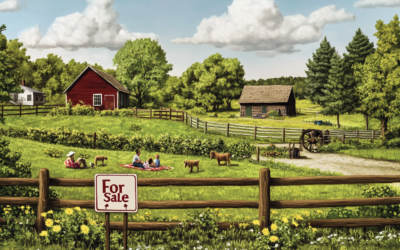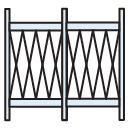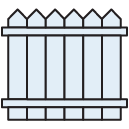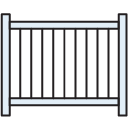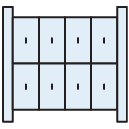A well-maintained fence is crucial for the safety and security of your livestock and property. In the demanding environments of South Georgia, North Florida, and SW Alabama, fences are constantly exposed to the elements, wildlife,and the wear and tear of daily use. Neglecting fence maintenance can lead to costly repairs, livestock escapes, and even safety hazards. In this article, we’ll share 5 essential tips for keeping your farm fence in top shape, maximizing its lifespan, and ensuring it continues to serve its purpose for years to come.
1. Regular Inspections:
The foundation of good fence maintenance is regular inspections. Walk your fence line at least once a month, carefully checking for signs of damage, such as:
- Loose or broken boards, wires, or posts
- Sagging or leaning sections
- Rust or corrosion on metal components
- Holes or gaps that could allow livestock to escape or predators to enter
- Damage from weather, wildlife, or fallen trees
2. Prompt Repairs:
Address any damage or wear as soon as you notice it. Prompt repairs can prevent minor issues from escalating into major problems that require costly replacements.
- Replace broken or damaged boards, wires, or posts.
- Tighten loose screws or nails.
- Repair or replace damaged gates and latches.
- Repaint or re-stain wood fences as needed to protect them from the elements.
3. Vegetation Control:
Overgrown vegetation can damage your fence and create hiding spots for predators. Regularly trim back any plants, shrubs, or trees that are encroaching on your fence line.
- Keep grass and weeds trimmed around the base of the fence.
- Remove any vines or climbing plants that could damage the fence structure.
- Prune trees and shrubs to prevent branches from rubbing against or falling on the fence.
4. Cleaning and Protection:
Regular cleaning can help prevent the buildup of dirt, debris, and animal waste that can accelerate wear and tear on your fence.
- Wash your fence with a mild detergent and water solution at least once a year.
- Pressure wash wood fences periodically to remove dirt and mildew.
- Apply protective coatings like paint, stain, or sealant to wood and metal fences to prevent weathering and rot.
5. Professional Maintenance and Inspections:
While many fence maintenance tasks can be handled by homeowners, it’s wise to schedule professional inspections and maintenance at least once a year. The Fence Man can identify potential problems early on and provide expert repairs or replacements to ensure your fence remains in optimal condition.
Conclusion:
Investing time and effort in regular fence maintenance is crucial for protecting your livestock, securing your property, and preserving the value of your investment. By following these essential tips and partnering with The Fence Man for professional assistance, you can keep your farm fence looking and functioning its best for years to come.

